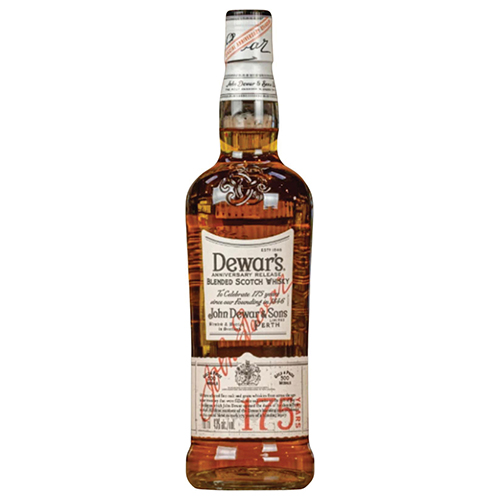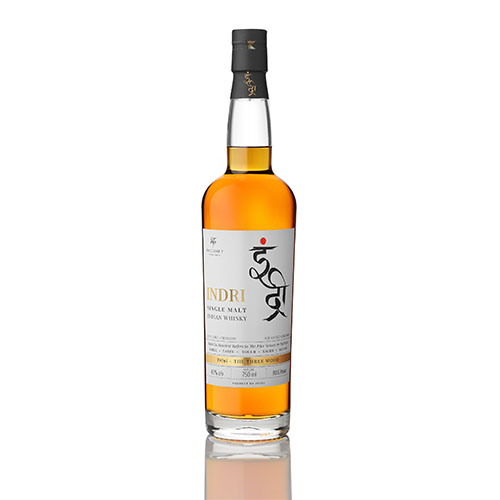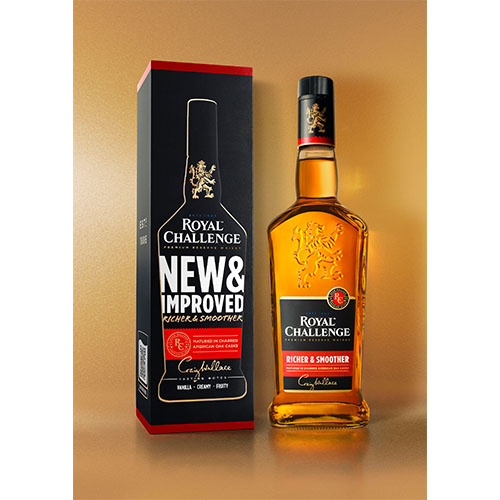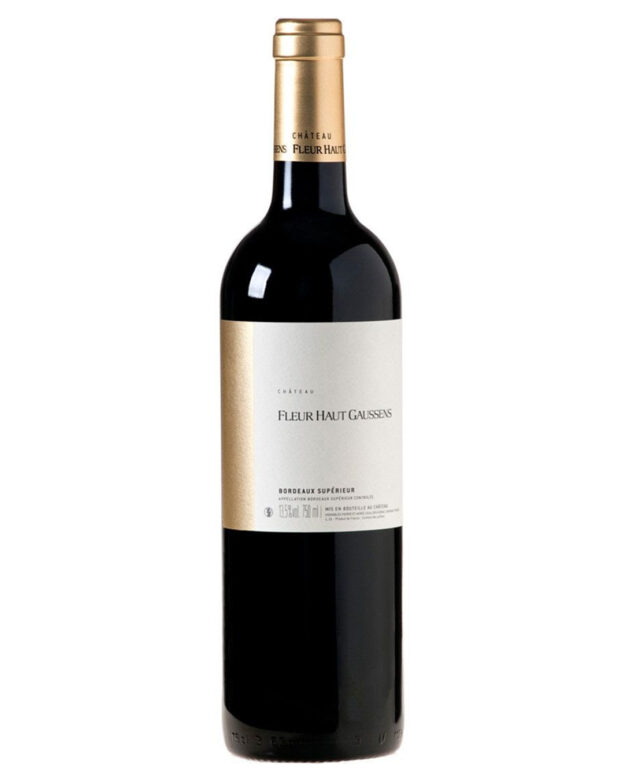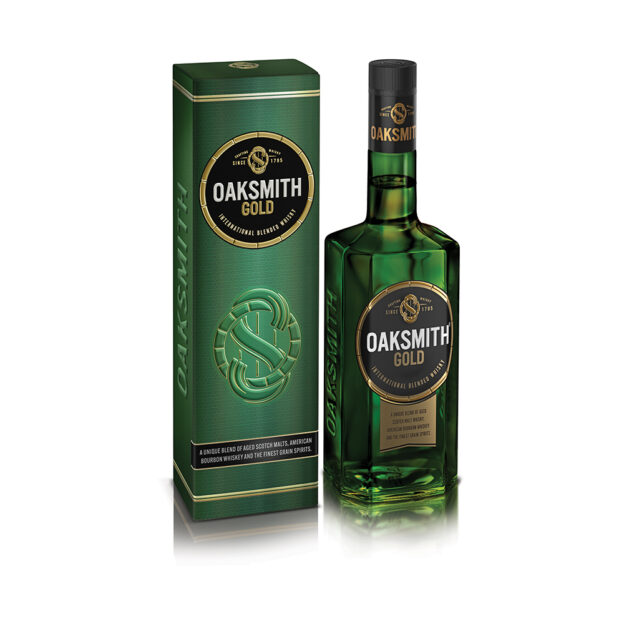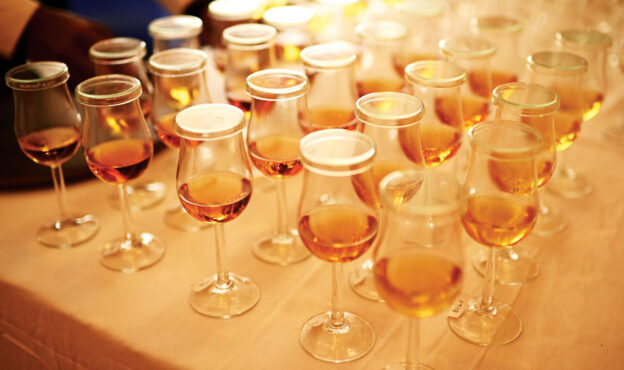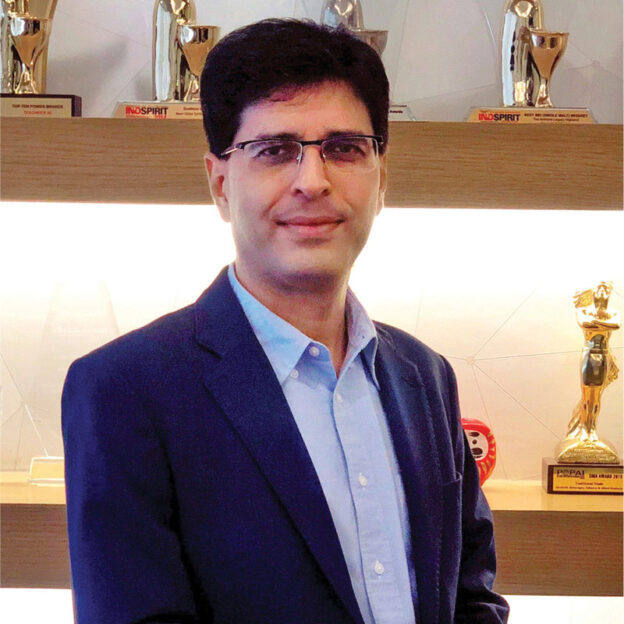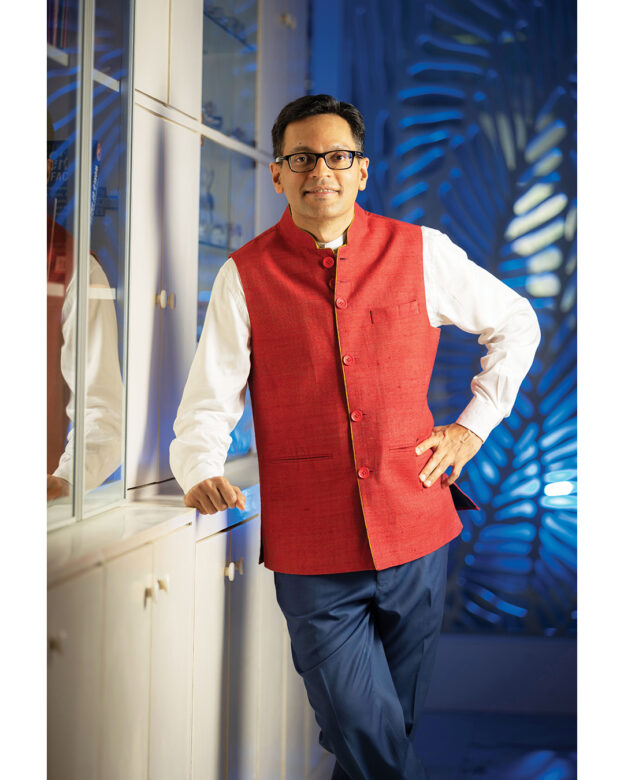Ms. Nita Kapoor, CEO, International Spirits and Wines Association of India ( ISWAI, gives a holistic view and shares insights on various issues the industry faces on account of high taxes, inflation, and interstate duties. The way forward is E-commerce, low duties via the FTA route, Maharashtra State duty cuts, Delhi Excise Policy model and premiumisation of liquor.
What role has ISWAI played to boost the interest of its members?
ISWAI is an apex body of the premium alcobev sector, promoted by multinational alcoholic beverage companies having investments and business operations in India. Founded in 2004, ISWAI strives to transform the Indian spirits and wines industry, upholding the highest level of quality, responsibility and ethical business practices.
ISWAI is actively engaging with state government and policymakers and committed to a supportive, predictable, harmonised, and progressive policy environment that enables member companies to thrive in India and build economic value for the States where they operate. ISWAI and its members advocate for responsible alcohol consumption by creating conversations about the negative impact of misuse, spurious and counterfeit products, illicit products, drinking and driving, and underage drinking.
Members of ISWAI include global leaders in both the spirits and wine industries, like Bacardi, Beam Suntory, Brown Forman, Campari, Diageo-United Spirits, Moet Hennessy, Pernod Ricard, and William Grant & Sons. Taken together, ISWAI’s members account for a substantial part of the revenue generated from alcoholic beverages across the country.
How have the international beverage companies coped with the Covid phenomenon?
Covid-19 has affected almost all businesses across sectors. The alcobev brands manage disruptions caused by Covid by focussing on efficient supply to ensure stock availability. The service of outlets is in line with the lockdown timings and guidelines laid down by each state. The alcobev companies also urge the state governments to consider home delivery of alcobev products as a regular service. It will minimise the disruption of retail businesses and improve job opportunities at the last mile route to consumers.
What is the strategy being adopted by the international beverage companies post-Covid?
In addition to what we mentioned above, ISWAI and its members engage with the state governments through regular consultations, which are essential to forging a predictable and progressive policy framework.
We have also seen a trend of premiumisation in the alcobev sector, which has further accelerated during the pandemic. The alcoholic beverages consumers are opting for better and premium quality brands. At-home consumption is paving the way for home delivery, social acceptance, and a rise in women consumers on account of home delivery during the pandemic.
Besides this, we are already seeing trends play out with consumers experimenting with craft gin, red wine and ready-to-drink (RTDs), which are anchored on differentiated and low alcohol content.
Do you see other states following suit by cutting duties like Maharashtra did?
West Bengal has already reduced its duties, and yes, we would expect other states to rationalise the additional duties on Bottled In Origin (BIO) products as a 150% customs duty is already levied, and any additional tax is a ‘tax on tax’ that artificially inflates the price of BIO products making it unaffordable for the consumer and thereby creating economic leverage for the counterfeit and spurious products. The reduction of duty in Maharashtra will lead to curtailment of counterfeit products, improve state revenues on account of minimal cross border inflow of spurious products.
The alcobev industry in India is witnessing significant changes influenced by a global culture leading to a trend towards premiumisation. Indian consumers are increasingly opting for ‘Bottled in Origin’ (BIO), and geographical indication (GI) tagged niche products, which carry a stamp of premium quality. The Maharashtra government has taken cognizance of the emerging growth trends of BIO in the alcobev segment and the importance of GI-tagged products, which is commendable. The decision by the Maharashtra government to halve the duty on imported alcoholic products (from 300% to 150%) will bring price rationalisation, disincentivise, if not eliminate, inter-state product smuggling, and increase volume offtake, thereby boosting the state excise revenue.
How is the Delhi government’s new policy likely to impact the international alcoholic beverage companies?
ISWAI believes that extended hours for on-premise alcobev outlets, reduction in the number of dry days, super-premium vends, an overhaul of consumer experience by privatising retail, auctioning of retail outlets, are all steps in the right direction and in keeping with Delhi’s image of a modern and bustling city that caters to a large number of young residents and tourists. It would also provide relief to the hospitality industry that has been hit hard by the pandemic.
As per the new policy, only private liquor shops will run in the city, and each municipal ward has 2-3 liquor vends. The Delhi government’s new policy is a welcome move. It is likely to curb illicit practices by equitably redistributing liquor shops, improving the consumer experience, and reducing corruption besides increasing government revenue. Every liquor outlet in the city will provide a unique walk-in experience to its customers, who will have multiple choices of brands. The entire selection and sale process will be completed within the vend premise.
Is all-around inflation likely to impact the industry?
Yes, inflation has affected the alcobev industry significantly. The triple whammy of suppressed volumes, runaway inflation, and reducing supplier share of the consumer rupee, makes it very hard for alcobev manufacturers to sustain their business operations.
The industry needs a predictable policy, a regulatory overhaul and an inflation-embedded approach to pricing. This would consider various factors such as differences in operating conditions between states, such as state levies, cost of materials, transportation, route-to-market, etc.
For example, the costs of a fast-moving brand in the value segment have increased by ₹60 per case compared to the previous year (A case is twelve bottles of 750ml each).
As per the estimates by the ISWAI, wet alcoholic ingredients, such as ENA and Scotch, are now 5% more expensive than last year, while the cost of packaging materials such as glass bottles rose by 8%, cartons by 37%, and labels and closures by 5% and 15% respectively, in just one year (FY21 and FY22 (est)). Additionally, transportation costs have shot up by 68% between FY18 and FY22.
With most states holding onto the historical lowest EDPs, no price increase leeway has been provided to the industry over the years, resulting in the Indian alcobev sector facing a sustainability crisis.
However, the need of the hour is to allow alcobev manufacturers to seek price increases recognising the supply chain and inflationary pressures. The excise policies of the states need to adjust for inflation.
Do online sales of alcobev products have a future in India?
In a pandemic-induced environment of social distancing, offering home delivery of liquor to curb counterfeit, spurious products, transparent pricing and simultaneously limiting crowding at shops is highly recommended. We believe that if the services are handled maturely by the retail trade and with all the necessary regulations in place, this could become a potential channel for the growth of revenue for states.
ISWAI urges state governments to consider ex-retail home delivery of liquor as a sustainable and long-term model. The state government can consider allowing home delivery to be included as a permanent feature of the excise policies of the states to cater to consumer demands and minimise industry disruptions during the Covid surge. It would enhance livelihood opportunities and unlock the potential of an alternative channel towards state revenues.
Has the premiumisation of liquor grown the sales of foreign liquor?
The premiumisation trend across beverage alcohol has been going on for some time. While Covid-19 has greatly impacted the alcohol industry in 2020, premiumisation appears to continue as consumers adopt new purchasing habits. Disposable income spent on going out to eat and drink before the pandemic was redirected to premium-and-above products for at-home consumption. As per IWSR Drinks Market Analysis data, total sales volume (all alcobev) declined about 29% to 474 million cases in 2020 from 668 million in 2019. Sales of spirits (which include whiskey, gin, vodka, rum and brandy) were down 20% to 277 million cases in 2020. The industry is yet to recover to pre-Covid levels and the jury is out there to confirm the growth of foreign liquor sales.
What is the possible outcome of the FTA between the UK and India?
We are encouraged by the forthcoming outlook shared by the Union Minister for Commerce and Industry, Piyush Goyal and the UK Secretary of State for International Trade, President of The Board of Trade, Anne-Marie Trevelyan, during the launch of the India- UK Free Trade Agreement (FTA) on January 13th,2022 in Delhi. The schedule to complete the early harvest agreement in the coming months is what we look forward to. Both ministers assured that the two nations would proactively and regularly engage with each other, deliberating on the trade deal’s scope and coverage.
Mr. Goyal said, “Atmanirbhar Bharat is about opening India’s doors wider so that India engages with the world from a position of strength, on equal, fair & reciprocal terms.” He calls for enhancing sectoral cooperation by addressing market access issues and removing trade restrictions.
Together with the Scotch Whisky Association (SWA), ISWAI has proposed a reduction in the customs duty, for products above a price threshold, from 150% to 75% immediately, and a final resting rate of 30% at the end of 5 years. Improved market access for Scotch would enable an increasing number of Indian consumers to enjoy these premium products. A similar reduction of duties on Bulk Spirit would also be good for our industry to step up the quality of its products by blending with aged Scotch, step up exports, and increase Indian government tax revenues – a win-win for all.



